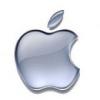-
Posts
10069 -
Joined
-
Last visited
-
Days Won
569
Content Type
Profiles
Articles, News and Tips
Forums
Everything posted by Hervé
-

E6410 with nVidia NVS 3100M graphics - Mountain Lion Guide
Hervé replied to v3ct0r's topic in The Archive
As far as Video kexts are concerned, non-applicable ones (such as nVidia) should be without impact; I'd expect them not to be loaded since the OS would not find a matching PCI device id... -
Did you use files or tables that could be specific to the E6400 (like DSDT)? If not, try rebuilding your kext cache with a myFix (full).
-
Re: 2.0GHz CPU reported at 1.81GHz, that could be a side effect of IDA. Check your BIOS settings and if it's enabled, disable it. Which CPU do you currently have, T7250 or T7300? You can upgrade your CPU to any C2D T7xxx, T8xxx or T9xxx at FSB 800MHz. The Extreme C2D CPUs should be supported too: X9000 or X78xx. I found these laptops work really really well with 4Mb cache CPUs (for instance, I found a D830 with a T7250 occasionally choppy under ML 10.8.2, whereas my D630 with a T7500 is a lot smoother). Unless you're a RAM-hungry application user, I doubt that 8Mb RAM would make any difference. But DDR2-800 does make a difference on DDR-667. I'd stick to 4GB.
-
Why do you add Mariusz's kexts? What's the purpose? You should only have to follow the documented procedure, i.e. : - myHack with dedicated bootpack to install 10.7.2 - install combo update 10.7.5 (no reboot on completion) - install and run EDP (EDPWeb) for D630 Intel HiRes (after which you can reboot to 10.7.5) That's it. The only possible missing item would be the wireless kext if you have a card that does not work OOB.
-
Assuming the Ethernet issue is indeed solved, please discuss other issues in appropriate posts.
-
I read about this Deviato thingie; I'd stay away from that old thing, the X3100 patching sounds a better method to me. With a T7200, you would really have to find a good explanation for using a legacy kernel!!! Just use plain Mach kernel. Again, I strongly recommend that you get SL 10.6.8 running before you start tuning things. Graphics set aside, everything else should be more or less straight forward under 10.6.8. But anyway, it's your call...
-
No, I would not think so, but I'm far from understanding how you installed Lion on your machine. Had you followed our myHack-EDP process, I'd know what to answer, but it appears you possibly followed obsolete ways... I have no problem running my D630 GMAX3100 on docking station with external VGA screen @ 1440x900 (no higher res I'm afraid), whether as main screen or as extended display. No problem running it in extended mode attached to my TV @ 1920x1280 either.... Haven't tried it as main/single screen, but that's an idea!
-
I would actually recommend that you run 10.6.8, because you'll get far more/far better support. For instance, most of the kexts we could recommend would have been tested with 10.6.3 and beyond. 10.6.0 is too old now and hardly anyone will be running that version. Upgrading really should not be an issue at all. If you want, you could even do it in steps: 1) download and install 10.6.3 Combo update - I'd expect this to be completely straight forward 2) download and install 10.6.7 Combo update - usually a straight forward update from 10.6.3 3) download and install 10.6.8 - can require kext tuning, especially ACPI/PCI/USB kexts... Why would you want to use legacy kernels??? What kind of CPU do you have?
-
You could also extract the DSDT table from your D630 with SATA mode set 1) to AHCI and 2) to IDE. Then compare the differences in the table to investigate potential DSDT edits...
-
No need to wait. Have faith!
-
Congrats for getting there! You should be safe to update if you're already running EDP-tuned 10.7.4, yes. It certainly worked for me months ago, with nothing to do on completion: https://osxlatitude.com/index.php?/topic/1819-1075-update/
-
If DSDT patching does not appear feasible, I was thinking that maybe a Chameleon module could work (where the device id would be changed from 27c4 to 27c5) -> that would in theory patch the kernel and be similar to those patches you see on Linux. Something to suggest to Chameleon developpers possibly... Wouldn't that operate before the OS begins to load? Isn't the Cham Sata module doing something similar?
-
AMD-based systems are a challenge, to say the least. Try another kernel maybe, like Modbin... You've probably done it, but I'd search the Net for info on systems of similar setup (chipset, CPU) and check all the BIOS settings.
-
'afraid not, the tables are 99.999% identical. Only line 5540 bears a tiny difference (unrelated to SATA controller) : Method (ZEJ0, 1, NotSerialized) -> in BIOS table Method (_EJ0, 1, NotSerialized) -> in Linux table
-
Ok, so there probably isn't a lot to be added, once SL is installed: . audio HDA should be straight forward (may even work OOB) . DW1397 works with patched IO80211Family or BCM43xxx kext . built-in Ethernet ??? No idea... . Webcam, not listed, but that may be connected to an internal USB and you said that it was working, OOB I guess. What I would suggest is to 1st get a basic/generic myHack SL installation up to 10.6.8, then proceed with tuning to get devices & functionalities working. You seem to be able to run SL without specific DSDT table, so it's a good start...
-
Update & conclusion... Working: SL 10.6.8 (replacing USB kexts by those of 10.6.3) battery info speedstep audio wireless bluetooth sleep & wake shutdown graphics resolution and switching (i.e. full framebuffer support) Not working: graphics HW acceleration (QE/CI not exactly obtained, too buggy for honest decent use) restart SL Installation is the major issue as I never found a way to sort out the lack of proper HDD recognition/access when installation starts. The trick was to install SL on the HDD connected via USB to a D620 GMA950, do a basic/generic installation of SL 10.6.3, perform combo update to 10.6.8 and add legacy kernel 10.8.0 v2. Then the HDD could be put back in the Inspiron 6000, SL 10.6.8 booted and tuned. Rather unpractical and unsuitable for any standard user. -> ABANDONNED!
-
I know the feeling, I more or less did the same with the Inspiron 6000 : I did eventually get SL 10.6.8 to run on it, but the installation method was just non-practical (not to say a bit of a joke) and graphics was just too bad (totally buggy). In the end, there was just no point... To me, it either runs to the full, or it does not, I see little interest/benefit/use of a partially functional OS. Re: PCI information, you can either get it through the Windows device drivers "Details" properties tab (you'll see lines such as: PCI\VEN_xxxx&DEV_yyyy&........... where xxx=Vendor id and yyyy=Device id in Hex) or through the System Preferences hardware table (but it may not be complete if unsupported H/W is not listed).
-
I had a look at the Dell documentation for that system. I had forgotten the GMA 4500MHD was totally unsupported in OS X. Support for that graphics chipset has been an on-going saga for the last 3 or 4 years. By now, you'll have seen by yourself the various results obtained by different people who attempted to get their GMA 4500-based laptop running under OS X. It appears max screen resolution can be obtained through various tricks, but no-one will ever get full hardware acceleration (QE/CI), it'll all be handled by the CPU. It looks like some kind of GMAX3100 kext patching provides some sort of decent graphics support that allows gaming and videos/movies playout with minimal artefacts/ripple effect, but I've seen so many methods and would-be solutions that it's difficult to follow... Personally, I'd start afresh with a myHack installation with generic /Extra and build-up from there. It would help to list the PCI information (Vendor id/Device id) of all your hardware, so that all necessary/missing kexts can be added to /E/E in an orderly manner. If DSDT patching were required (for things like restart/shutdown or Sleep/wake issues), extract the table using Cham Wizard and send it to OSXL according to the process published by Dinesh: https://osxlatitude.com/index.php?/topic/1945-dsdtssdt-patching/ To me, the main conclusion is that this particular model will never make a great Hackintosh (like all GMA 4500 machines), so probably not worth it in my opinion...
-
What differences did you find between the two?
-
No, you can combine all that you want.
-
The cause of the problem is not your graphics card. An unsupported card does not normally prevent boot, you just have no hardware acceleration and a default resolution. Did you try any of the above flags and/or options?
-
Mmm, it does not sound like you have full QE/CI then... Are you able to get max screen resolution and change resolution without setting the res in Cham boot plist? If no, then the framebuffer is probably not loaded.
-
Sorry, it's a bit difficult to know where you're at, so please correct/amend/update as required: 1) laptop now running SL 10.6.8 2) which bootloader version? 3) full QE/CI apparently, what about screen resolution and resolution changes? 4) audio working 5) battery support working 6) built-in Ethernet working 7) webcam working 8) wireless? If you have a DW1397, it's the same chip as DW1395, so patched IO80211Family or BCM43xxx kexts will get you wireless 9) sleep? 10) wake? A few more questions: Are you using NullCPUPowerManagement and SleepEnabler in /Extra? I have found that some system will work perfectly without any of them, sometimes SleepEnabler causing system to KP at startup. You should try and use Cham v2.1. EDP use to provide r1791 but you should be Ok with more recent versions such as r2069 (I think it's still the official branch) or beyond (up to r2181 I think today). It's possible that updating to SL 10.6.8 requires to revert to kexts from SL 10.6.3. On some systems, I've had to replace USB + PCI + ACPI kexts, but not on others... You should however definitely use the EDP provided ACPIPlatform kext (aka Coolbook fix). What parameters do you have in your Cham boot plist? If you don't use NullCPUPwrMgmt, you should select P States + C States. You should also select UseKernelCache + Built-in Ethernet + Restart Fix. Set SystemType to laptop. If your graphics card/GPU is fully supported, I guess GraphicsEnabler can be set too. I'll try and upload some of these kexts later on, as if they were provided by EDP.
-
Of course it's included, Lion fully supports X3100 integrated graphics! -> In /S/L/E: AppleIntelGMAX3100FB.kext.zip
-
You're mistaken, there is no specific FrameBufffer for WXGA+ resolution. Use everything from standard installation and bootpack/EDP. Files from Mariusz are just way too old by now! Make sure you have the latest EDP version on your D630, if not, download/update latest version. Run EDPweb tool off /Extra and do a new build,


